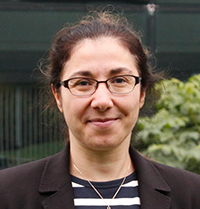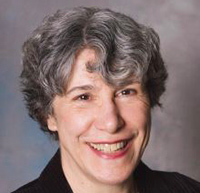
|
|
|
Program > Speakers
The Verne Chapman Lecture
 The Verne Chapman Lecture will be given by Rudi Balling, PhD.
The Verne Chapman Lecture will be given by Rudi Balling, PhD.
Dr. Rudi Balling is director of the Luxembourg Centre for Systems Biomedicine at the University of Luxembourg.
The Mary Lyon Award
Congratulations to the Mary Lyon Award Winners : for 2019
 Melissa Wilson, PhD Arizona State University, Tempe, AZ |
 Binnaz Yalcin, PhD Institute of Genetics and Molecular and Cellular Biology Illkirch, France |
Confirmed invited speakers
Marisa Bartolomei, PhD
University of Pennsylvania
 One aspect of the research in the Bartolomei laboratory focuses on the study of genomic imprinting in mice. While affecting only a subset of genes in mammals, genomic imprinting results in the unequal expression of the maternal and paternal alleles of a gene. As a consequence, the maternal and paternal genomes are functionally non-equivalent and both are required for normal mammalian development.
One aspect of the research in the Bartolomei laboratory focuses on the study of genomic imprinting in mice. While affecting only a subset of genes in mammals, genomic imprinting results in the unequal expression of the maternal and paternal alleles of a gene. As a consequence, the maternal and paternal genomes are functionally non-equivalent and both are required for normal mammalian development.
Her laboratory also studies the process of X inactivation in mice. X inactivation is the dosage compensation mechanism that female mammals use to silence one X chromosome and to achieve equivalent X-linked expression to males.
Christine M. Disteche, PhD
University of Washington
 The focus of research in the Disteche lab, the X chromosome, provides a model for a naturally occurring “aneuploidy” caused by the evolution of a specific set of sex-determining chromosomes that differ in their copy number between males (XY) and females (XX). A fundamental issue in biology and medicine is to understand the effects of aneuploidy on gene expression and the mechanisms that alleviate imbalances of the genome. Such imbalances cause specific disorders including mental retardation and cancer. The X chromosome has evolved specific genetic and epigenetic mechanisms of dosage compensation, which we investigate using global approaches in terms of chromatin modifications during stem cell differentiation and embryo development. We are also interested in the impact of X-linked genes in producing sex-specific differences
The focus of research in the Disteche lab, the X chromosome, provides a model for a naturally occurring “aneuploidy” caused by the evolution of a specific set of sex-determining chromosomes that differ in their copy number between males (XY) and females (XX). A fundamental issue in biology and medicine is to understand the effects of aneuploidy on gene expression and the mechanisms that alleviate imbalances of the genome. Such imbalances cause specific disorders including mental retardation and cancer. The X chromosome has evolved specific genetic and epigenetic mechanisms of dosage compensation, which we investigate using global approaches in terms of chromatin modifications during stem cell differentiation and embryo development. We are also interested in the impact of X-linked genes in producing sex-specific differences
Alexandre Reymond, PhD
Center for Integrative Genomics
University of Lausanne
 A fundamental question in current biomedical research is to establish a link between genomic variation and phenotypic differences, which encompasses both the seemingly neutral polymorphic variation, as well as the pathological variation that causes or predisposes to disease. In addition to the millions of individual base-pair changes that distinguish any two unrelated copies of our genome, recent reports have described large numbers of copy number variable regions (CNVs). Much effort has been put into the identification and mapping of these regions in humans and a number of model organisms, but a comprehensive understanding of its phenotypic effect is only beginning to emerge.
A fundamental question in current biomedical research is to establish a link between genomic variation and phenotypic differences, which encompasses both the seemingly neutral polymorphic variation, as well as the pathological variation that causes or predisposes to disease. In addition to the millions of individual base-pair changes that distinguish any two unrelated copies of our genome, recent reports have described large numbers of copy number variable regions (CNVs). Much effort has been put into the identification and mapping of these regions in humans and a number of model organisms, but a comprehensive understanding of its phenotypic effect is only beginning to emerge.

